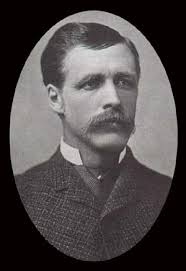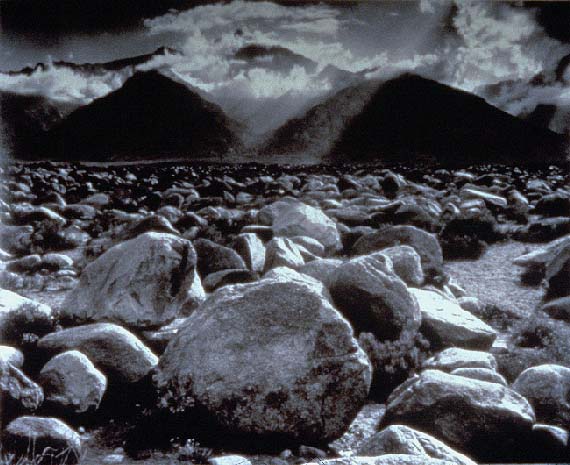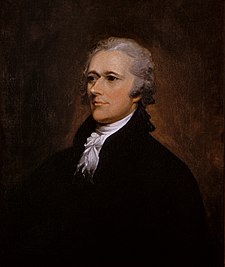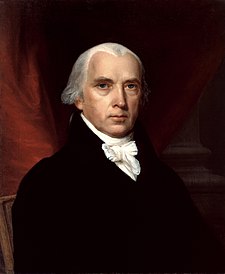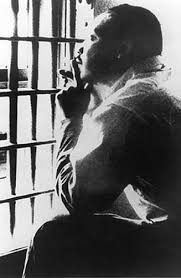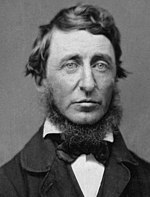
Edward Kennedy's
Euology to Robert Kennedy
St. Patrick's Cathedral
New York City
June 8, 1968
On behalf of Mrs. Robert Kennedy, her children and the parents and sisters of Robert Kennedy, I want to express what we feel to those who mourn with us today in this Cathedral and around the world. We loved him as a brother and father and son. From his parents, and from his older brothers and sisters--Joe, Kathleen and Jack--he received inspiration which he passed on to all of us. He gave us strength in time of trouble, wisdom in time of uncertainty, and sharing in time of happiness. He was always by our side.
Love is not an easy feeling to put into words. Nor is loyalty, or trust or joy. But he was all of these. He loved life completely and lived it intensely.
A few years back, Robert Kennedy wrote some words about his own father and they expressed the way we in his family feel about him. He said of what his father meant to him: "What it really all adds up to is love--not love as it is described with such facility in popular magazines, but the kind of love that is affection and respect, order, encouragement, and support. Our awareness of this was an incalculable source of strength, and because real love is something unselfish and involves sacrifice and giving, we could not help but profit from it.
"Beneath it all, he has tried to engender a social conscience. There were wrongs which needed attention. There were people who were poor and who needed help. And we have a responsibility to them and to this country. Through no virtues and accomplishments of our own, we have been fortunate enough to be born in the United States under the most comfortable conditions. We, therefore, have a responsibility to others who are less well off."
This is what Robert Kennedy was given. What he leaves us is what he said, what he did and what he stood for. A speech he made to the young people of South Africa on their Day of Affirmation in 1966 sums it up the best, and I would read it now:
"There is a discrimination in this world and slavery and slaughter and starvation. Governments repress their people; and millions are trapped in poverty while the nation grows rich; and wealth is lavished on armaments everywhere.
"These are differing evils, but they are common works of man. They reflect the imperfection of human justice, the inadequacy of human compassion, our lack of sensibility toward the sufferings of our fellows. "But we can perhaps remember--even if only for a tirne--that those who live with us are our brothers; that they share with us the same short moment of life; that they seek--as we do--nothing but the chance to live out their lives in purpose and happiness, winning what satisfaction and fulfillment they can. "Surely this bond of common faith, this bond of common goal, can begin to teach us something. Surely, we can learn, at least, to look at those around us as fellow men. And surely we can begin to work a little harder to bind up the wounds among us and to become in our own hearts brothers and countrymen once again."Our answer is to rely on youth--not a time of life but a state of mind, a temper of the will, a quality of imagination, a predominance of courage over timidity, of the appetite for adventure over the love of ease. The cruelties and obstacles of this swiftly changing planet will not yield to obsolete dogmas and outworn slogans. They cannot be moved by those who cling to a present that is already dying, who prefer the illusion of security to the excitement and danger that come with even the most peaceful progress. It is a revolutionary world we live in; and this generation at home and around the world, has had thrust upon it a greater burden of responsibility than any generation that has ever lived.
"Some believe there is nothing one man or one woman can do against the enormous array of the world's ills. Yet many of the world's great movements, of thought and action, have flowed from the work of a single man. A young monk began the Protestant reformation, a young general extended an empire from Macedonia to the borders of the earth, and a young woman reclaimed the territory of France. It was a young Italian explorer who discovered the New World, and the thirty-two-year-old Thomas Jefferson who proclaimed that all men are created equal. "These men moved the world, and so can we all. Few will have the greatness to bend history itself, but each of us can work to change a small portion of events, and in the total of all those acts will be written the history of this generation. It is from numberless diverse acts of courage and belief that human history is shaped. Each time a man stands up for an ideal, or acts to improve the lot of others, or strikes out against injustice, he sends forth a tiny ripple of hope, and crossing each other from a million different centers of energy and daring, those ripples build a current that can sweep down the mightiest walls of oppression and resistance.
"Few are willing to brave the disapproval of their fellows, the censure of their colleagues, the wrath of their society. Moral courage is a rarer commodity than bravery in battle or great intelligence. Yet it is the one essential, vital quality for those who seek to change a world that yields most painfully to change. And I believe that in this generation those with the courage to enter the moral conflict will find themselves with companions in every corner of the globe.
"For the fortunate among us, there is the temptation to follow the easy and familiar paths of personal ambition and financial success so grandly spread before those who enjoy the privilege of education. But that is not the road history has marked out for us. Like it or not, we live in times of danger and uncertainty. But they are also more open to the creative energy of men than any other time in history. All of us will ultimately be judged and as the years pass we will surely judge ourselves, on the effort we have contributed to building a new world society and the extent to which our ideals and goals have shaped that effort.
"The future does not belong to those who are content with today, apathetic toward common problems and their fellow man alike, timid and fearful in the face of new ideas and bold projects. Rather it will belong to those who can blend vision, reason and courage in a personal commitment to the ideals and great enterprises of American Society."Our future may lie beyond our vision, but it is not completely beyond our control. It is the shaping impulse of America that neither fate nor nature nor the irresistible tides of history, but the work of our own hands, matched to reason and principle, that will determine our destiny. There is pride in that, even arrogance, but there is also experience and truth. In any event, it is the only way we can live."
"This is the way he lived. My brother need not be idealized, or enlarged in death beyond what he was in life, to be remembered simply as a good and decent man, who saw wrong and tried to right it, saw suffering and tried to heal it, saw war and tried to stop it. Those of us who loved him and who take him to his rest today, pray that what he was to us and what he wished for others will some day come to pass for all the world. As he said many times, in many parts of this nation, to those he touched and who sought to touch him:
"Some men see things as they are and say why.
I dream things that never were and say why not."
Video



